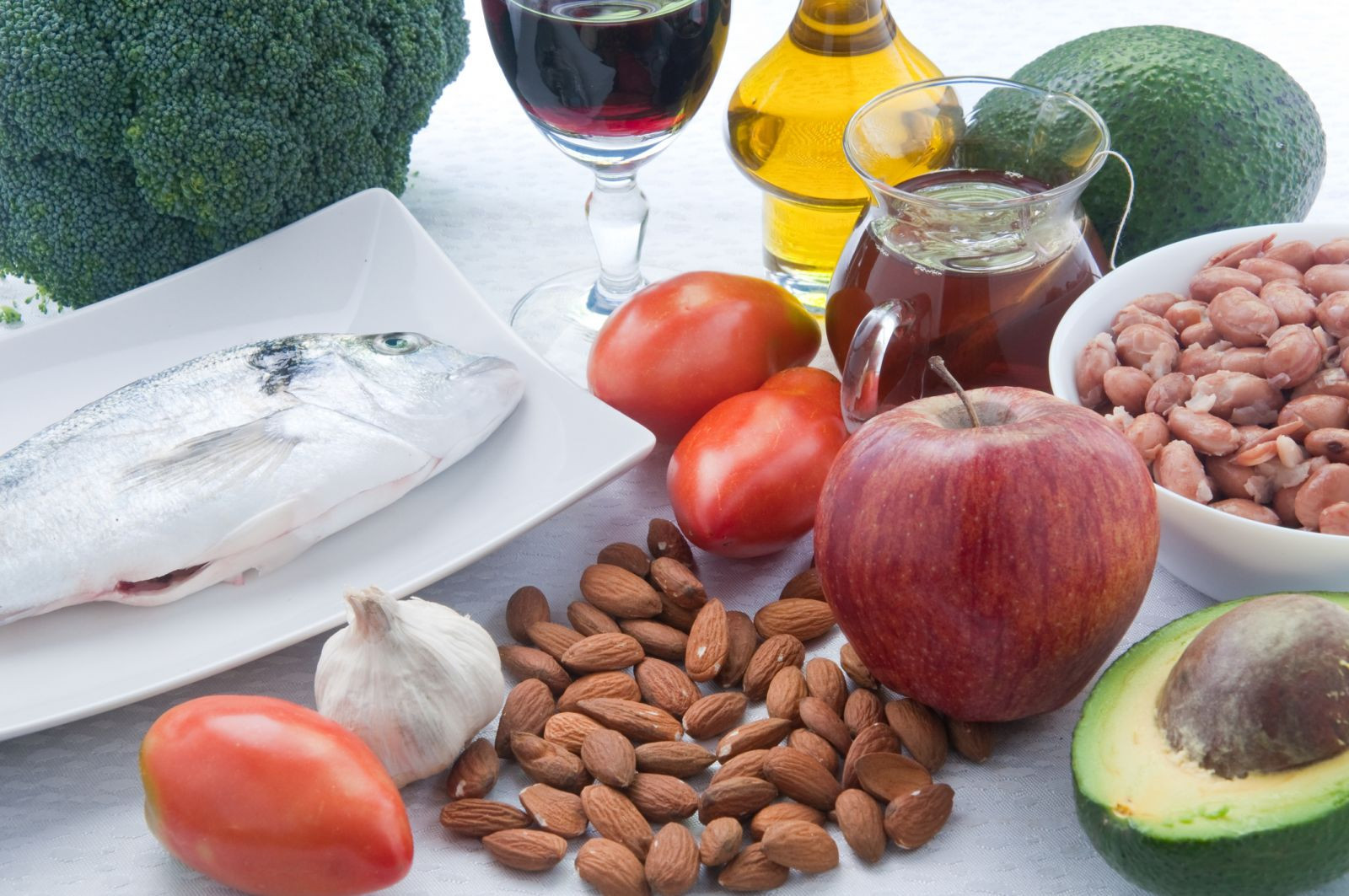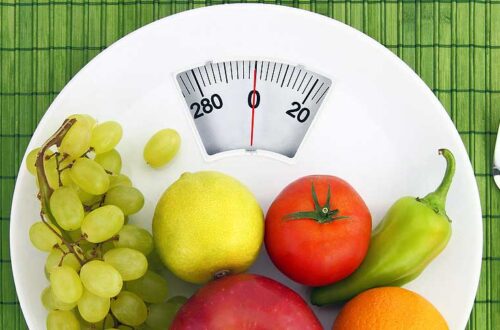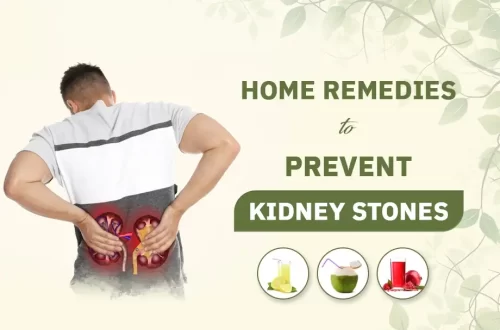Foods to lower cholesterol
There are quite a good number of foods to lower cholesterol levels. Modifying your diet can lead to significant reductions in cholesterol levels and improve the overall composition of fats in your bloodstream.
Incorporating foods that specifically target low-density lipoprotein (LDL) cholesterol—the harmful type of cholesterol that contributes to the buildup of atherosclerosis in the arteries—is a highly effective approach for achieving a low-cholesterol diet.
Foods to Incorporate for Lowering LDL Cholesterol
Different foods contribute to lowering cholesterol through various mechanisms. Some foods are rich in soluble fiber, which binds to cholesterol and its precursors in the digestive tract, effectively eliminating them from the body before they can enter the bloodstream.
Others provide polyunsaturated fats that can directly lower LDL levels, while some contain plant sterols and stanols, which inhibit the absorption of cholesterol in the body.
- Oats
A simple yet effective first step toward lowering your cholesterol is to enjoy a bowl of oatmeal or a cold oat-based cereal, such as Cheerios, for breakfast.
This meal offers approximately 1 to 2 grams of soluble fiber, which is beneficial for heart health. To increase your fiber intake even further, consider adding a banana or some strawberries, which can contribute an additional half gram of soluble fiber.
Current nutrition guidelines recommend that adults consume between 20 to 35 grams of fiber daily, with at least 5 to 10 grams coming from soluble fiber sources. However, many Americans only manage to consume about half of this recommended fiber intake.
By making these dietary adjustments and incorporating cholesterol-lowering foods, you can take important steps toward improving your heart health and reducing the risk of cardiovascular disease.
- Barley and Other Whole Grains
Similar to oats and oat bran, barley and other whole grains are effective at lowering the risk of heart disease, primarily due to their high soluble fiber content. Including whole grains in your diet can help reduce LDL cholesterol levels and support overall cardiovascular health.
- Beans
Beans are exceptionally rich in soluble fiber, making them a fantastic choice for heart health. Additionally, beans digest slowly, which helps you feel fuller for longer after a meal—making them a valuable food for individuals looking to manage their weight.
With a wide variety of options available, including navy beans, kidney beans, lentils, garbanzo beans, and black-eyed peas, beans can be easily incorporated into many dishes, providing versatility and nutrition.
- Eggplant and Okra
These two low-calorie vegetables are excellent sources of soluble fiber. Adding eggplant and okra to your meals can help increase your fiber intake while contributing minimal calories, making them ideal for heart-healthy eating.
- Nuts
Numerous studies indicate that consuming a variety of nuts, such as almonds, walnuts, and peanuts, can be beneficial for heart health. Eating about 2 ounces of nuts daily may result in a modest reduction in LDL cholesterol—approximately 5%. Nuts are also packed with additional nutrients that support heart health in various ways, making them a smart addition to your diet. - Vegetable Oils
Opting for liquid vegetable oils, such as canola, sunflower, and safflower oil, instead of butter, lard, or shortening can help lower LDL cholesterol levels. These oils contain healthier fats that contribute to improved heart health, making them a better choice for cooking and meal preparation.
- Apples, Grapes, Strawberries, and Citrus Fruits
Fruits like apples, grapes, strawberries, and citrus fruits are rich in pectin, a type of soluble fiber known for its cholesterol-lowering properties. Including these fruits in your diet not only adds natural sweetness but also provides valuable nutrients that can help reduce LDL cholesterol levels.
By incorporating these foods into your daily meals, you can effectively lower your LDL cholesterol and support your overall heart health.
Making these dietary changes is a proactive step toward maintaining a healthy cardiovascular system and enhancing your well-being.
- Foods Fortified with Sterols and Stanols
Foods fortified with plant sterols and stanols can significantly aid in lowering cholesterol levels. These compounds, derived from plants, hinder the body’s ability to absorb cholesterol from food.
Many manufacturers now add sterols and stanols to a variety of products, including margarine, granola bars, orange juice, and even chocolate. They are also available in supplement form. Consuming about 2 grams of plant sterols or stanols daily can lead to a reduction in LDL cholesterol by approximately 10%.
- Soy
Soy products, such as soybeans, tofu, and soy milk, have long been recognized for their potential cholesterol-lowering effects.
While the impact is somewhat modest, research indicates that consuming around 25 grams of soy protein each day—equivalent to about 10 ounces of tofu or 2.5 cups of soy milk—can lower LDL cholesterol by 5% to 6%. Including soy in your diet can contribute to your overall heart health while providing valuable nutrients.
- Fatty Fish
Incorporating fatty fish into your diet two to three times a week can help lower LDL cholesterol through multiple mechanisms. First, replacing meat, which often contains LDL-raising saturated fats, with fish helps reduce overall saturated fat intake.
Additionally, fatty fish are rich in omega-3 fatty acids, which have been shown to lower LDL cholesterol levels. Omega-3s also help reduce triglycerides in the bloodstream and offer protective benefits for the heart by helping to prevent abnormal heart rhythms.
- Fiber Supplements
While not the most appealing option for increasing fiber intake, fiber supplements can be an effective way to boost your soluble fiber consumption.
For instance, two teaspoons of psyllium, commonly found in products like Metamucil and other bulk-forming laxatives, provide about 4 grams of soluble fiber.
Incorporating these supplements can help support your cholesterol-lowering efforts, particularly if you’re struggling to get enough fiber from food sources alone.
By including these additional foods and supplements in your diet, you can further enhance your cholesterol-lowering strategies and promote better heart health. Making these changes not only benefits your cholesterol levels but also contributes to your overall well-being.
Putting Together a Low-Cholesterol Diet
When it comes to investing, experts often advise creating a diversified portfolio rather than concentrating all resources in one area. The same principle applies to achieving lower cholesterol levels through diet.
By incorporating a variety of foods that lower cholesterol through different mechanisms, you can create a more effective and balanced approach rather than relying solely on one or two options.
A predominantly vegetarian “dietary portfolio of cholesterol-lowering foods” can significantly reduce LDL cholesterol, triglycerides, and blood pressure. Key components of this diet include a generous amount of fruits and vegetables, whole grains instead of highly refined options, and protein sources that primarily come from plants.
Additionally, consider adding margarine fortified with plant sterols, as well as foods rich in soluble fiber such as oats, barley, psyllium, okra, and eggplant. Incorporating soy protein and whole almonds can further enhance your cholesterol-lowering efforts.
Transitioning to a cholesterol-lowering diet requires more mindfulness and effort compared to simply taking a daily statin. It involves expanding the range of foods in your shopping cart and becoming accustomed to new textures and flavors.
However, this natural approach to lowering cholesterol comes with significant advantages, including minimizing the risk of muscle problems and other side effects that can accompany certain statin medications.
Equally important is the broader health impact of a diet rich in fruits, vegetables, beans, and nuts. Such a diet not only helps lower cholesterol but also contributes to overall health in various ways.
It helps maintain healthy blood pressure levels, promotes flexibility and responsiveness in the arteries, and supports bone and digestive health. Moreover, this type of diet can have positive effects on vision and mental well-being.
By embracing a diverse range of cholesterol-lowering foods, you can not only improve your heart health but also enhance your overall quality of life.
Insights Regarding A Low-Cholesterol Diet
Here are some additional insights regarding a low-cholesterol diet and its broader implications for health:
- Personalized Nutrition
Everyone’s body responds differently to dietary changes. It may be beneficial to consult with a healthcare professional or a registered dietitian who can help tailor a low-cholesterol eating plan to your specific needs, preferences, and health conditions. They can provide guidance on portion sizes, food combinations, and meal planning.
- Mindful Eating
Adopting a low-cholesterol diet isn’t just about what you eat; it’s also about how you eat. Practicing mindful eating—taking the time to savor your food, recognizing hunger and fullness cues, and avoiding distractions—can enhance your overall experience and improve your relationship with food.
- Sustainability
Many cholesterol-lowering foods, such as fruits, vegetables, whole grains, and legumes, are not only healthy but also environmentally sustainable.
Focusing on plant-based foods can reduce your carbon footprint and promote a more sustainable food system, which is an important consideration for many individuals today.
- Experimenting with New Recipes
Adopting a low-cholesterol diet opens up opportunities to experiment with new recipes and cooking techniques. Trying out different cuisines that emphasize plant-based ingredients can make meals exciting and enjoyable.
For example, exploring Mediterranean or Asian dishes can introduce you to a variety of flavors and ingredients that support heart health.
- Incorporating Physical Activity
Dietary changes are most effective when paired with regular physical activity. Engaging in activities like walking, swimming, or cycling can further help lower cholesterol levels, improve cardiovascular health, and enhance overall well-being. Aim for at least 150 minutes of moderate-intensity exercise each week.
- Hydration
Staying adequately hydrated is also important for overall health. Drinking enough water helps maintain bodily functions and can aid in digestion, which is crucial when consuming a high-fiber diet. Herbal teas and infused waters can also be enjoyable alternatives.
- Monitoring Progress
Regularly monitoring your cholesterol levels, along with other health markers such as blood pressure and weight, can help you gauge the effectiveness of your dietary changes.
Keeping a food journal or using mobile apps to track your meals and progress can provide insights and keep you motivated.
- Support and Community
Engaging with a community or support group can provide encouragement and accountability as you make dietary changes. Sharing experiences, recipes, and challenges with others on a similar journey can be uplifting and helpful.
- Long-term Commitment
Changing your diet is not just a temporary fix; it’s a long-term commitment to improving your health. Building a sustainable, heart-healthy diet can contribute to lifelong wellness and reduce the risk of chronic diseases.
By embracing these insights, you can create a comprehensive approach to lowering cholesterol that goes beyond food choices, enhancing your overall health and lifestyle.
Benefits of Eating Pomegranate

A graduate of Computer Science and Information Management Technology. Diploma – Caregiving, Certificates – Dementia and Diabetes Awareness and Management. A researcher, blogger, songwriter, singer and acoustic guitarist. Born in an environment where natural talents such as healing are imparted at our natural birth. This natural talents of healing is the result of our genetic inheritance and the training from family environment.













